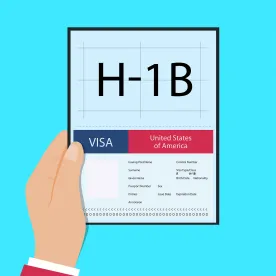Florida’s Senate Bill 1718 penalizes Individuals, Employers, Hospitals, and Local Governments
With the close of the recent legislative session in Florida, Gov. Ron DeSantis signed into law Senate Bill 1718, which uses the state as a conduit to enforce federal immigration laws. Senate Bill 1718, to take effect July 1, will do the following:
-
Suspend or revoke all local and state business licenses for employing undocumented individuals;
-
Require businesses to use E-Verify to check employee work eligibility; and
-
Require hospitals to collect data on immigrants without legal status; and
Suspension of Business Licenses for Hiring Undocumented Individuals
Senate Bill 1718 makes it “unlawful for any person to knowingly to employ, hire, recruit, or refer, either for herself or himself or on behalf of another, for private or public employment within [Florida], an [individual] who is not duly authorized to work” in the United States. An employer’s first violation is deemed noncriminal and can incur a civil fine of not more than $500, in addition to a probationary period of one year, during which time the employer must file quarterly reports on the immigration status of each employee. A second violation leads to the suspension, and possible revocation, of all state and local business licenses, depending on the number of undocumented individuals working for an employer. An employer with 1 to 10 undocumented individuals will receive a 30-day suspension of all state and local business licenses. If employing 11 to 50 undocumented individuals, the employer’s local and state business licenses will be suspended for 60 days. All local and state business licenses will be revoked if the employer is found to employ more than 50 undocumented individuals.
Mandated E-Verify Participation
Senate Bill 1718 requires all public employers, as well as private employers with more than 25 employees, to participate in the E-Verify system. The E-Verify system is an internet-based program operated by the federal government, which electronically verifies the employment eligibility of new employees through the Department of Homeland Security (DHS) and Social Security Administration (SSA) databases. The E-Verify system is used in conjunction with Form I-9, Employment Eligibility Verification (Form I-9). The information from a completed Form I-9 is entered into the E-Verify system, which then checks work eligibility by comparing the Form I-9 information to records available to DHS and SSA. Depending on whether the Form I-9 information matches the DHS and SSA records, the E-Verify system will either indicate that the employee is confirmed to work or issue a “Tentative Nonconfirmation” (TNC) notice, indicating that the Form I-9 information does not match and that the employee may lack work eligibility. The TNC triggers an employer’s obligation to follow specific federal government-prescribed steps, which may extend for 30 days or more, and report on the results.
While participation in the E-Verify system is voluntary under federal law, the recently-enacted legislation in Florida mandates use for each new employee within 3 business days of an employee’s start date and includes a compliance reporting requirement with each annual state unemployment compensation tax filing. Failure to comply with mandated E-Verify enrollment and participation carries a fine of up to $1,000 per day.
Immigration Status Now Part of Florida Hospital Admission Process
The new Florida legislation provides that each “hospital that accepts Medicaid must include a provision on its patient admission or registration forms for the patient or the patient’s representative to state or indicate whether the patient is a United States citizen or lawfully present in the United States or is not lawfully present in the United States.” It is noted that the form must also include a statement that the patient’s response “will not affect patient care or result in a report of the patient’s immigration status to immigration authorities.” Florida hospitals must then submit quarterly reports to the state providing the number of hospital admissions or emergency department visits made by patients who indicated that they were citizens of the United States or lawfully present in the United States, were not lawfully present in the United States, or declined to answer.
Public and private employers, as well as hospitals, must review their onboarding and intake processes to ensure compliance with Senate Bill 1718, as failure to do so can and will lead to severe consequences, from stiff penalties to the end of an organization’s ability to do business in Florida.



 />i
/>i

